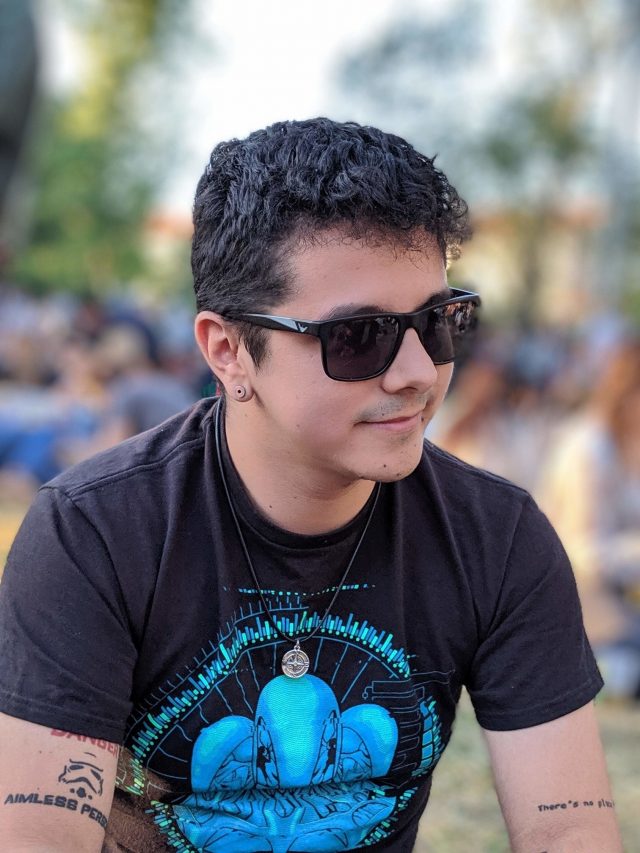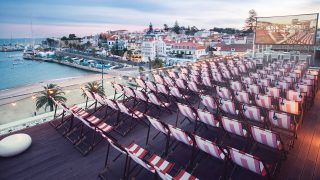We love to meet expats who can tell us their stories. How they moved to Portugal, why they did it, the difficulties, and what they think of the country. This week, we’ve asked Wendell Adriel, a Brazilian living in Portugal, to share his story with us. He is a software developer and he’s moved with his family from Brazil three years ago. He’s very happy with his decision however, in the beginning, it wasn’t always so easy. Here’s his testimonial.
A Brazilian software developer in Portugal
Hi, my name is Wendell and I’m a software developer in Portugal and IT expert. I have been living in Portugal since 2016 when I moved from Brazil. A lot of people have asked me to write an article about the IT market in Portugal and how I managed to roam through it. That being said, this is my story.

Software development: Hiring process
This all happened when I was still living in Brazil. A friend of mine tagged me in a Facebook post about an open spot for a Senior Software Developer in Portugal’s capital, Lisbon. I reached out to the company who posted that ad and sent my CV. That’s how the selection process started. The company that hired me is a consulting business, meaning it provides consulting services to other companies. Because of that, my hiring process was made by two different enterprises: the one that would hire me in the future, and their client (a.k.a. the company I would work with). The whole procedure was divided into five different stages:
- Firstly, I had an interview with the Human Resources manager in the consulting business.
- Then, I had a technical interview with that corporation.
- This was followed by an interview with the Human Resources manager for the company I would be working with.
- After that, there was a practical test with the client enterprise.
- Finally, I had a technical interview with the client company, where we discussed my job there.
Getting a residency VISA
After everything was settled and I had been approved to take that spot, the company sent the documentation I needed via the post office. That meant I had to go to the Portuguese embassy in Brasília and get the document list I needed. After I took care of everything I needed, I returned to the embassy and asked for a residency visa. Fortunately for me, that only took 22 days to process. And at the beginning of August 2016, I moved to Lisbon with my wife. Find out more about moving to Portugal, subscribe to our newsletter.

The first few weeks
The first moments in Portugal were complicated. Although the language was technically the same, it was easier for me to talk to people in English. That’s because I could not understand almost anything people said, due to their accent and how fast Portuguese people talk. This was the most difficult challenge. Regarding safety and freedom, you will, most likely, get used to a peaceful lifestyle. I was never afraid of walking in the street at night with my phone in my hand. Criminality rates in Portugal are among the lowest in Europe. If you want to read more about safety in Portugal, check out this article.
Salary and lifestyle
The question I get asked most frequently is why I moved to Portugal when it’s the European country with the lowest salaries. I always answer the same thing: Portugal was never the place me and my wife thought we would live in. Our goal was to move to Canada, but this was the best work opportunity for me outside of Brazil. However, in the week of our flight to Lisbon, I got accepted for a job in Canada, but we couldn’t take it. I had already sold everything, had our boarding passes in my hands and had signed my contract. We could not go back and we definitely did not regret moving forward with our plan. That being said, we did not leave Brazil to get rich. Portugal is not the place to earn a fortune as a web developer. We stayed for the quality of life and that is unpayable. I earn more or less the same I earned in Brazil, but the purchasing power in Portugal is incredibly higher. I have been seeing that web developers in Portugal earn between €800 and €2.500 per month (net salary). You must be thinking: that’s so low! I agree, it sounds low, but the living costs are really decreased here. It all comes down to your lifestyle. However, a couple without children can spend, on average, €1.200 per month and live very comfortably. You can go to the grocery store and buy whatever you want without getting anxious, go out to restaurants, pay your bills, etc. As I have mentioned before, it all depends on what kind of life you live.

Day-to-day life in Portugal
Everyone asks me about day-to-day life here, especially affecting my professional life. It’s not that much different when compared to Brazil, but I can list some contrasts. Note that this is very relative, as every company has its own methodologies and particularities. This is just my personal experience. Tranquillity: every work experience I ever had in Brazil was very stressful. Deadlines were always due the day before. Everyone was always in a rush and nothing was ever meticulously planned. Here, it’s a whole different story. Work is more paced and you can keep track of what you do in an organized way. Obviously, there are some tense periods where you are exposed to more stress, but generally, there’s not too much pressure. Contact with other languages: in Portugal, it’s very common to work in projects with teams from other countries, or have international clients. Usually, in those cases, you communicate in English. For every project I have worked on here, I have had daily contact with the English language. I am required to write, read, listen and speak it. So you have to be trained constantly and perfect your skills.
IT market in Portugal
This particular job is extremely looked for across Portugal in Europe. Companies have a lot of open spots for this type of position, but struggle to find candidates who fit with the profile they look for. Most enterprises are looking for Senior Developers, but some look for junior web experts. But that’s hard to find here.
How to get a software developer job in Portugal?
I am going to give you a few tips on how to be a good software developer in Portugal, based on my professional experience. Understanding English is essential. Before you start learning five different programming languages, note that English is the most important skill you need. The best platform to find these jobs is LinkedIn. I receive lots of job offers via LinkedIn. Keep it updated and have an English version of your profile available on the website. This will grab employers’ attention. Soft skills: I always say that one of the things that differentiate a middle developer from a senior developer are their soft skills. Technical knowledge is secondary. You must know how to sell your skills. Personal marketing is extremely important. Be careful with this, though. Lying is completely prejudicial to your image. What I mean by this is: it is extremely helpful to create a personal website to showcase your projects and experiences. So, get yourself out there. Participate in events and projects. Be a lecturer. That can and will help you promote your skills. Your merit will come as an award. If you want to find a job in Portugal as a software developer, check out your opportunities by clicking here or here.
Moving to Portugal: was it worth it?
Moving to Portugal wasn’t on my bucket list before I knew it was going to be my home. But I am so glad I moved here. There’s no place like Portugal. It may not sound perfect, but there’s something quite special about this country. Being a software developer in Portugal is definitely worth it. I hope you enjoyed this article and that it helped answer some of your questions. If you want to know more about Wendell, click on the links below.
- Personal Site: https://wendelladriel.com
- Twitter: @wendell_adriel
If you have any further questions or feel like also sharing your personal experience, reach out to us, we would love to share your story.






